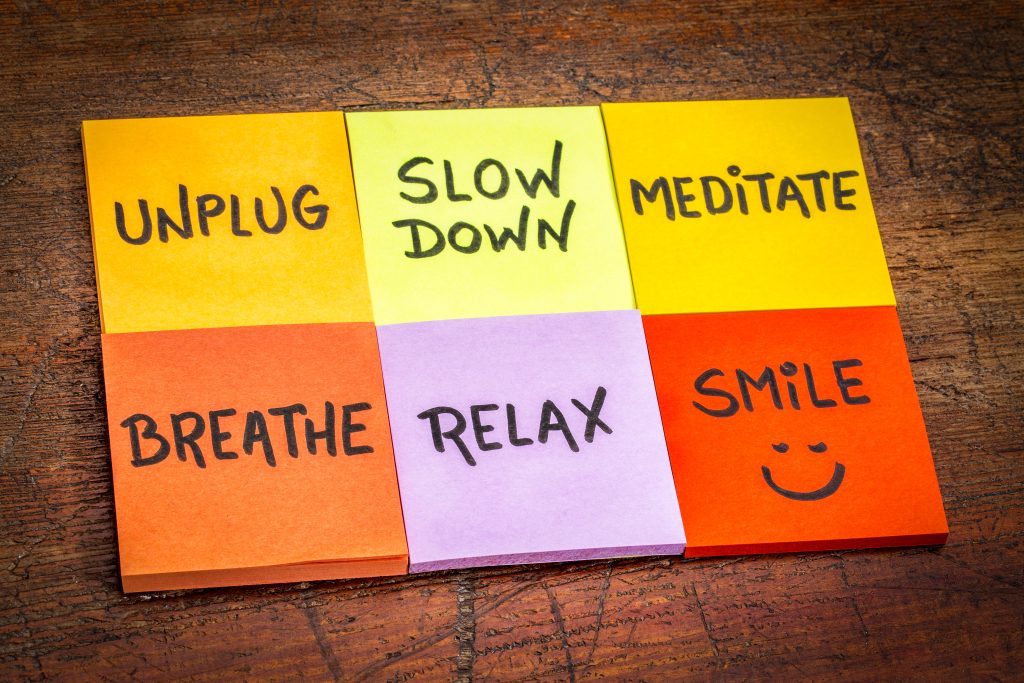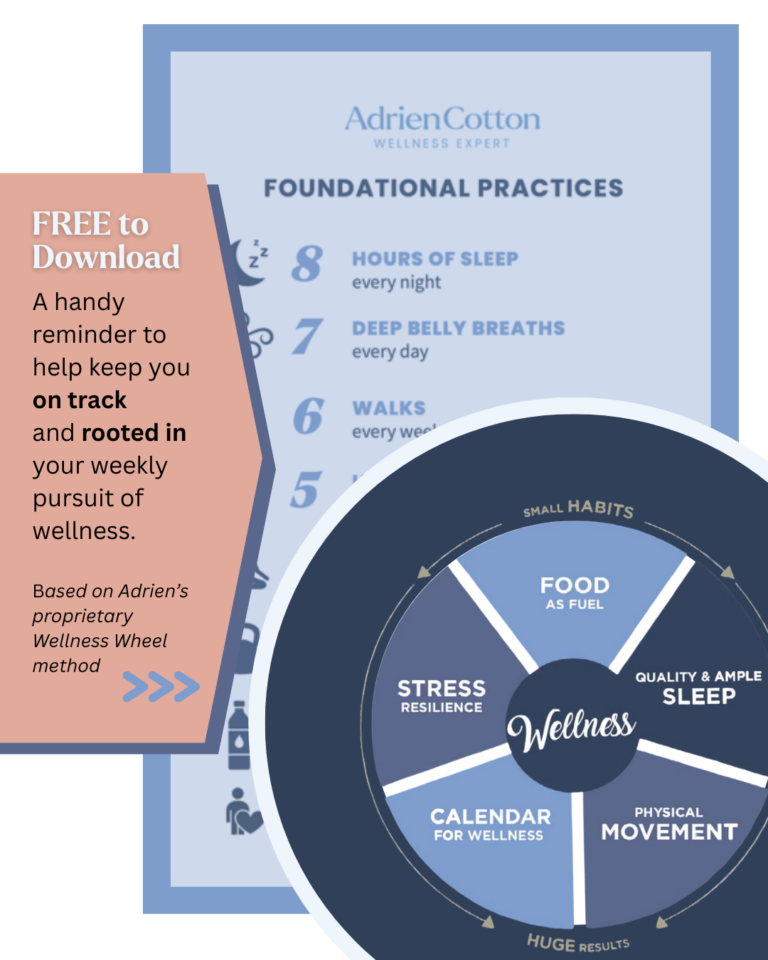As a wellness professional with over 20 years of experience, I have seen one habit pave the path to weight gain, disrupted sleep, persistent health issues, impaired decision-making, depression, genuine unhappiness, and an overall lack of self-esteem more than any other.
No, it’s not skipping the gym, and no, it’s not a fast food run. It’s actually something we probably don’t even recognize as being a “habit.”

Beware the addiction to chronic stress.
Ah – stress. We all encounter it in one way or another. It’s a normal, albeit unfortunate, part of daily life. Our bodies, amazing as they are, were built to withstand it… to a certain degree. They are not built for chronic, habitual, and prolonged stress.
When we experience this – and we can all admit we do – we begin to experience negative physical, emotional, and mental symptoms that leave us feeling debilitated, unmotivated, and ready to throw in the towel for the day.
Have you ever noticed that on our most hectic days, we feel a lack of confidence, have less patience, feel negative emotions more intensely, lose our train of thought, or can’t find motivation? I’ve been there and done that COUNTLESS times.
Why Chronic Stress?
So, what is it about stress that makes us feel completely unanchored?
Here’s a scientific breakdown.
Stress is your body’s reaction to feeling threatened in some way. Evolutionarily, stress protects us from immediate physical danger. When our body is stressed, its own first responder, the hormone cortisol, goes to work to relieve the intense strain on our mind and body. Cortisol, also known as our “stress hormone,” is made by our adrenal glands — two small glands that sit on top of our kidneys. Along with helping us respond to stress, it also plays a key role in other functions, including how our body breaks down carbohydrates, lipids, and proteins.
While normal levels of cortisol (which are released when we exercise, help strengthen our heart, and reduce pain sensitivity) are beneficial, too much of this hormone can wreak havoc on our bodies long term.
How exactly?
- Poor sleep
- Increased headaches
- Digestive problems
- Carbohydrate cravings
- Slowed metabolism
- Decreased cognitive function
It’s important to note, too, that prolonged stress can lead to serious medical conditions like diabetes, heart disease, mental distress, or even death. Stress is no joke and something we should not take lightly.
Of course, we are not promised a stress-free life. No one is! However, there are ways to reduce our negative reactions and build a sold stress resilience practice that will leave us feeling empowered instead of defeated.
Below are two strategies I’ve seen and practiced (that work!) that lead to stress resilience, fat loss, and ultimately, feeling stronger and more confident in your body and in your life.

1. Breathe in, breathe out: Practice deliberate breathing
Deliberate breathing takes minimal effort, calms your mind and body in a moment of stress, and prepares you for unexpected stress later. While we often take it for granted, focusing on your breathing can help us get in tune with our bodies and ‘take the edge off’ a stressed-out brain. It’s also an extremely easy and effective method to incorporate at any time during your day, lowering your stress with little effort.
2. One moment at a time: Quit multitasking and focus on simplicity
Doing more than one thing at a time is hard on the brain. Our brains are not super-computers and are certainly not wired to accomplish multiple activities at once, at least not well. When we multitask, we don’t do anything optimally because the task at hand is getting less than our full attention.
Talking on the phone and checking email? Be prepared to spend time the next day fixing the mess we created because we weren’t paying full attention to the call.
Eating while working? Say hello to digestive issues, which also lead to weight gain.
The solution?
Complete each task, then move on to the next to best care for your brain and your stress.
Once we swap our habit of chronic stress for these two positive daily practices, we will begin to see the abundance of joy and confidence that comes from stress resilience. We do not have to be weighed down by stress or negative emotions. Find more tips on maintaining a healthy, stress-resilient brain here.
While we can’t choose or control everything that comes our way, we can choose to create wellness habits that fortify our minds and bodies to be better prepared for whatever life brings.
If these tips resonate with you, you can gain even more incredible wellness resources from my Concierge Small Group Wellness Sessions. Take a look and fill out the interest form if you want to learn more about this program.



